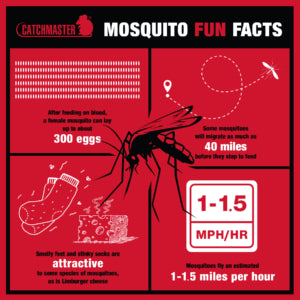The Mosquito Control Market is Booming for the 2019 Mosquito Season
According to a recent press release issued on MarketWatch.com, there is 8.6%+ growth for Mosquito Control Service with the market size rising to USD 880 million by 2024. In this updated report of market trends, demand spectrum and future prospects were all evaluated over a five year period. It remains evident that pest control services, particularly mosquito control, is essential for commercial, residential, and government. Residential is the main consumer making up about 65.1% of global total sales revenue in 2017. The mosquito control marketing has been on the upswing for a while now as it was named the fastest growing pest segment in 2017 according to Specialty Products Consulting. Mosquitoes aren’t going anywhere anytime soon! In fact, with record winters warming across the United States, mosquitoes aren’t dying off during cold months as they’ve done in previous years. They are surviving winters by simply hibernating in holes and waiting for warmer weather. Some females even lay their eggs in the fall and the frozen larvae keep until the weather warms up. When they hatch they wreak havoc in the spring before the rainy season begins.
Mosquito Control is Vital to Public Health
Clearly, your role as a pest management professional is not only a lucrative one, but a vital one. Mosquito control is a necessary method to prevent numerous viruses. The more mosquitoes there are, the more likely viruses will spread. Recent weather has caused researchers from Georgia State and Arizona State University to further study the impact of large rainfall amounts caused by such events as hurricanes. They developed a mathematical model to study the transmission of vector-borne infectious diseases in temperate areas of the world, including the southern coastal area of the United States. Different species are active at different times of the day and at times of the year. For example, research from the above study proved that a heavy rainfall occurring on July 1 results in 70% fewer disease cases than one that occurs on June 1. Warmer weather means viruses incubate faster giving them more time to spread. Additionally, warmer weather makes mosquitoes even hungrier, which is a master recipe for furthering an outbreak. The critical information from this study and others helps public health officials appropriately respond by seeking mosquito control solutions and pest management professionals like you.


